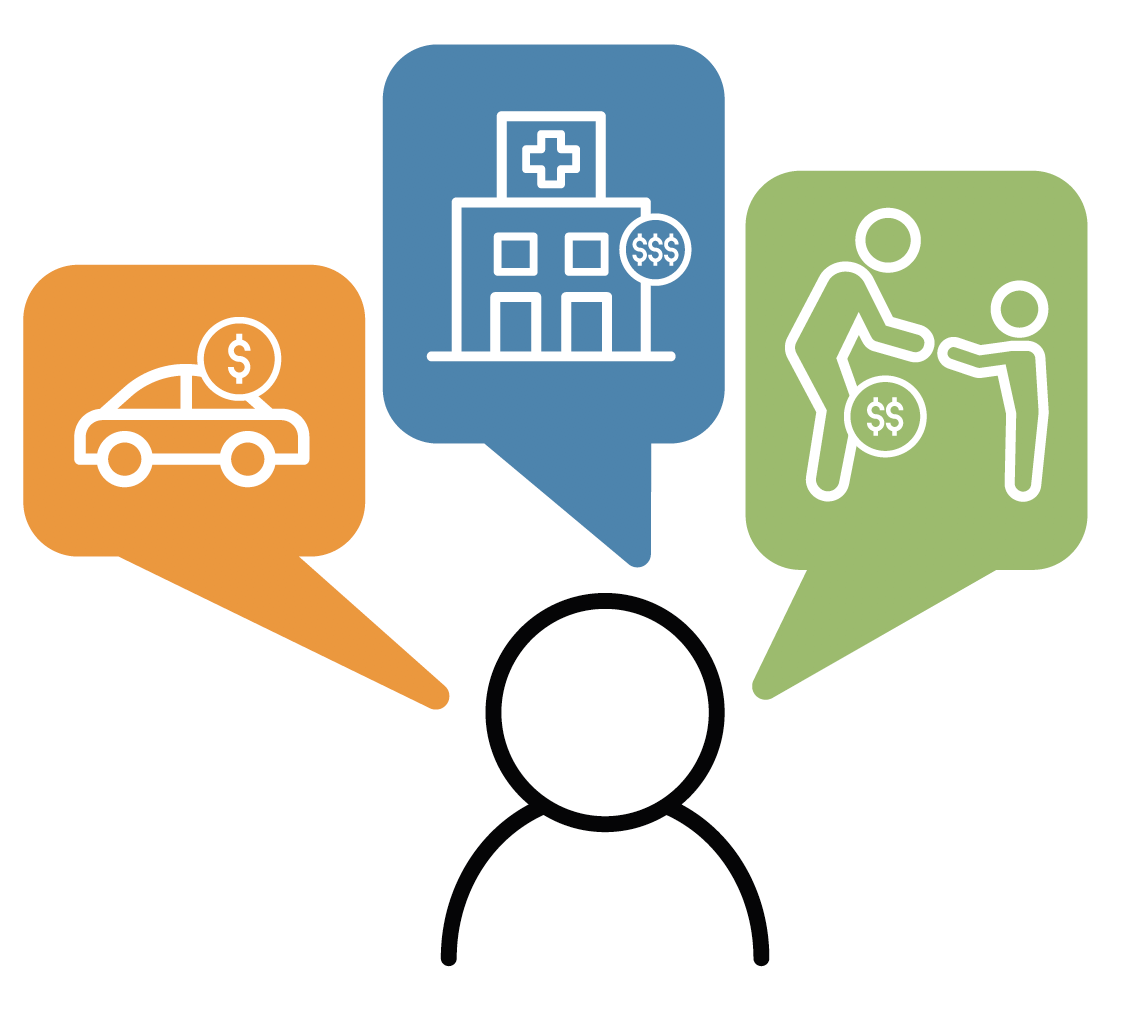Written by Martha Gershun, Guest Blogger
Donating a kidney can be expensive. While the recipient’s insurance – whether through a private company or Medicare – fully covers the donor’s medical, surgical, and hospital expenses, it does not cover out-of-pocket costs. This means many who donate some distance from their home town are left to cover their own expenses for transportation, meals, and lodging.
Insurance also fails to compensate donors for the time required for evaluation, surgery, and recovery. Even those who donate locally will miss as much as a month of paid work. If they are caregivers for children or older adults, they often need to pay someone else to cover that work. Furthermore, donors are required to have a designated caregiver for their surgery and recovery, and that person could also have expenses for travel, as well as missed work or time away from caring for children or older adults.
When I donated a kidney in 2018 to a woman I read about in the newspaper, the travel expenses for my husband, who was my designated caregiver, and me were over $5,000. I was retired, but my husband missed 16 days of paid work. Fortunately, our children were grown, and we had no older adults to care for. My recipient graciously reimbursed our out-of-pocket expenses. But even with all of that good fortune, donating a kidney was costly.
These significant financial burdens mean many potential donors cannot afford to save the lives of family, friends, or strangers. This is particularly appalling as every kidney transplant saves private insurance and/or Medicare between $250,000 and $500,000 compared to the patient receiving dialysis.
The National Living Donor Assistance Center (NLDAC) provides some assistance, but reimbursement is means tested and – very oddly – tied to the income of the recipient, rather than the income of the donor.
In 2023 Gov. Kathleen Hochul signed the New York State Living Donor Support Act, which reimburses living donors up to $10,000 in lost wages and out-of-pocket expenses. It is the first state program of its kind. But we need federal legislation to help reduce barriers to living kidney donation nationwide.
As a member of the Expert Advisory Panel to the Kidney Transplant Collaborative, I have been honored to provide input during the development of the organization’s priority legislation, the Living Organ Volunteer Engagement (LOVE) Act. This legislation would help build a comprehensive national living organ donor infrastructure that would support a national donor education program, create a donor navigator system, ensure appropriate donor cost reimbursement, collect essential data, and improve all aspects of living organ donation across the country, substantially reducing barriers that limit participation today.
Key provisions of the LOVE Act would:
- Provide reimbursement for all direct and indirect costs for living donation, including lost wages up to $2,500 per week.
- Provide life and disability insurance for any necessary care directly caused by donation.
- Modify NLDAC rules so neither the recipient’s income nor the donor’s income would be considered for eligibility.
- Provide for new public education program on the importance and safety of living organ donation.
- Provide for new mechanisms to collect and analyze data about living organ donation to enable evidence-based continuous process improvement.
Numerous other federal proposals are also currently vying for support to address barriers to living donation on a national level. They include:
Living Donor Protection Act (H.R. 2923, S. 1384)
- Prohibits insurance carriers from denying, canceling, or imposing conditions on policies for life insurance, disability insurance, or long-term care insurance based on an individual’s status as a living organ donor.
- Specifies that recovery from organ donation surgery constitutes a serious health condition that entitles eligible employees to job-protected medical leave under the Family and Medical Leave Act.
Organ Donor Clarification Act (H.R. 4343)
- Clarifies that reimbursement to living organ donation is not “valuable consideration” (I.e., payment), which is prohibited under the National Organ Transplant Act (NOTA)
- Allows pilot programs to test non-cash compensation to living organ donors.
- Modifies NLDAC rules so the recipient’s income would no longer be considered for eligibility.
Living Organ Donor Tax Credit Act (H.R. 6171)
- Provides a $5,000 federal refundable tax credit to offset living donor expenses.
Honor Our Living Donor (HOLD) Act (H.R. 6020)
- Modifies NLDAC rules so the recipient’s income would no longer be considered for eligibility.
- Requires public release of annual NLDAC report.
Helping End the Renal Organ Shortage (HEROS) Act
- Provides a $50,000 refundable federal tax credit over a period of five years for non-directed living kidney donors.
Many potential living kidney donors find their efforts to save a life thwarted by substantial financial barriers. It’s time we passed federal legislation to ease the burden on these altruists. No one should have to pay to donate a part of their body to save another life.
Martha Gershun is a nonprofit consultant and writer living in Fairway, KS with her husband Don Goldman. Her most recent book, Kidney to Share (Cornell University Press, 2021), with co-author John Lantos, MD, details her experience donating a kidney at the Mayo Clinic to a woman she read about in the newspaper. Gershun serves on the Expert Advisory Panel for the Kidney Transplant Collaborative and serves on the Board of the National Kidney Foundation Serving Kansas, Oklahoma, and Western Missouri.

